The absence of any measures in the Spring Budget targeted at boosting the automotive retail industry by jumpstarting market demand for EVs has been widely condemned as a missed opportunity.
Chancellor Jeremy Hunt in his Spring Budget announcement focussed on short-term, ‘last throw of the dice’ measures suspected of being an attempt to salvage the Conservative Government’s election prospects.
Sue Robinson, chief executive of the National Franchised Dealers Association (NFDA), which represents franchised car and commercial vehicle dealers, said the UK remains one of the major markets in Europe with little to offer in terms of price incentives for private buyers of electric vehicles.
"Conversely, due to strong demand for BEVs, the French government announced a temporary halt to its EV subsidised lease programme last month and will resume it again in the new year due to its success.
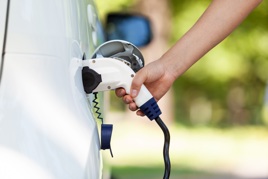 “In NFDA’s Spring Budget submission, NFDA had urged the Government to introduce incentives to prevent EV sales from flatlining. Noticeably, fleet has been driving sales of new cars rather than private buyers. The Government must do more to help maintain momentum in the private BEV market and increase adoption of these cleaner vehicles across the UK.”
“In NFDA’s Spring Budget submission, NFDA had urged the Government to introduce incentives to prevent EV sales from flatlining. Noticeably, fleet has been driving sales of new cars rather than private buyers. The Government must do more to help maintain momentum in the private BEV market and increase adoption of these cleaner vehicles across the UK.”
Vauxhall's managing director James Taylor also criticised Hunt for giving "nothing" to motorists who want to drive a family EV, agreeing that purchase incentives are needed urgently to stop the UK being left behind in the drive to sustainable motoring.
"“Whilst there are strong incentives for company car drivers to make the switch to electric – including for those choosing luxury vehicles – the private buyer who wants a more attainable small or family car receives nothing."
Anthony McFarlin, tax director, MHA, noted that having introduced targets for electric vehicle uptake at the start of 2024 the automotive sector is struggling to stimulate the requisite demand for the products with the February BEV share relatively static at 15.8%, some way short of the mandated 22% for 2024.
"Yet there is no indication that the Government wishes to assist in this transformation instead preferring to play to the crowd with policies that appear neglectful of the Net Zero Strategy: Build Back Greener paper of 2021."
The only respite for the motorist featured the news that fuel duty is to be frozen at its current rate for the next 12 months, together with an extension to the 5p cut on fuel duty which was due to end this month.
Lisa Watson, director of sales at Close Brothers Motor Finance, conceded that extending the ‘temporary’ fuel duty cut by 12 months would come as some relief to motorists concerned about the soaring cost of driving.
"Whilst only likely to have a small positive impact, it’s a step in the right direction, particularly for the 53% of drivers who cite fuel prices as the biggest challenge in the next 12 months. We’ve seen continuous hikes at the pumps over the last few months and this has added further pressure to drivers who already feel they’re faced with increased costs from all lanes, making car ownership difficult to afford for 62% of drivers.”
Ian Plummer, commercial director at Auto Trader, played down the significance of the Budget fuel duty freeze: “Fuel duty has been frozen every year since 2011, so no self-respecting Chancellor would ever shoot himself in the foot by raising it in an election year.
“Drivers may avoid higher pump prices for now, but the freeze does send yet more mixed messages to any motorists tempted to switch to electric vehicles.
“Equalising VAT across public and private EV charging points would encourage people to make the switch, and for a fraction of the £6bn cost of freezing fuel duty, so today is a missed opportunity to support the green transition.”
He added that electric vehicle drivers who can charge at home pay just 5% VAT on their energy bill, but 38% of those without driveways are forced to use public chargers and pay the full VAT rate of 20% making the price difference between home and public charging significant.
Auto Trader which has joined the FairCharge campaign has calculated that drivers charging off peak at-home could save £865 annually compared to internal combustion engine vehicles, but that a driver using public rapid chargers would pay £264 more over a year.
 Fiat UK managing director Damien Dally said while the fuel duty measures will be welcome news to motorists, its estimated cost to the Treasury will be around £5 billion to implement. Instead, he said, it could have implemented the rise and ringfenced that money to invest into the UK's "seemingly dwindling" electric vehicle strategy.
Fiat UK managing director Damien Dally said while the fuel duty measures will be welcome news to motorists, its estimated cost to the Treasury will be around £5 billion to implement. Instead, he said, it could have implemented the rise and ringfenced that money to invest into the UK's "seemingly dwindling" electric vehicle strategy.
Dally (pictured) said: “It’s hugely disappointing that the Chancellor has failed to reinstate financial incentives for electric vehicle buyers in today’s Budget.
“The government has set the direction of travel by enforcing the Zero Emission Vehicle (ZEV) Mandate and Net Zero target, but is doing nothing to incentivise retail customers to drive electric vehicles."
Private sales account for fewer than one in five electric car registrations in 2024 to date, and the industry is concerned about meeting the 22% mandated by the government as part of the ZEV Mandate.
“The demand for electric vehicles is waning and we are sleepwalking into an electric vehicle crisis. The government is also potentially putting its Net Zero target at risk," Dally said.
The lack of any government support for garages and auto technicians was also slated for leaving the industry behind in the EV revolution as the Budget featured no mention of the Apprenticeship Levy or wider apprenticeship reform.
NFDA's Robinson said: "The motor retail sector experienced its highest vacancy rate in 2023. The sector currently is grappling with an intensifying skills shortage, which a reform of the Apprenticeship Levy could help alleviate.
"NFDA has consistently called for the Government to remove the claw-back cap and simplify the Apprenticeship Levy application process to enhance the utilisation of the capital locked into the levy. This will in turn assist dealers looking to recruit the next generation of apprentices.”
James Lett, technical editor at Autodata, agreed: “The IMI predicts a shortfall of over 29,767 technicians in 2035, the same year the ban on new combustion engine vehicles being sold has been extended to. Like many in the industry, we had high hopes that the Spring Budget would recognise the need for critical investment and support.
“A million EVs are already on the road, but they can only be serviced or repaired by technicians with specialist training and tools. Neither of these are cheap nor do we see any government investment to change that.
“Not only are garages are losing money by turning down business, EV drivers can’t access the services they need to safely be on the road. It’s a catch-22 situation that cannot continue.
“The truth is clear, the EV revolution cannot happen if the backbone of the automotive industry keeps being forgotten about.”
Moves to offset cost of living pressure on household budgets were welcome however. Forecasts from the Office of Budget Responsibility (OBR) show inflation falling below the 2% target in just a few months’ time, a year earlier than forecast in the Autumn statement.
This prompted the Chancellor to cut workers' National Insurance Contributions (NIC) by another 2p in the Budget, meaning it falls from 10% to 8% from next month and is worth £450 a year for the average worker.
MHA's McFarlin said this was welcome news as it puts cash in buyers' pockets. "However, not everyone will benefit as not everyone pays NIC. For example, those over State Pension age and those who receive income from investments portfolios or rental properties.”
He added that the rate cut being enacted in this way is expected to have an impact on vehicle salary sacrifice schemes where the employees monthly earnings and the car benefit falls between £1,048 and £4,189.
The high-income child benefit charge threshold will also be raised from £50,000 to £60,000 and the taper will extend up to £80,000. The threshold rise will lift 170,000 families out of paying the charges altogether and half a million families receiving an average of f £1,260 more this year, helping to create some room in the monthly budget of families.
The Chancellor also announced that full expensing would now be extended to leased assets as well as the VAT threshold increasing from £85,000 to £90,000.
MHA's McFarlin said that, to date, it has not been possible to claim a first-year allowance, such as full expensing relief - previously the super-deduction - when purchasing plant and machinery for leasing. "This may prove to be a welcome amendment for the lessors in question, as well as lessees who may be able to share in the benefits of full expensing through rental pricing,” he said.
Robinson said that the NFDA was disappointed that long-awaited business rates reform had 'once again' been sidelined but noted the Chancellor’s announcements to make full expensing apply to leased assets as well as increasing the VAT threshold from £85,000 to £90,000.
“These rates are now at the highest level ever at 54p in the pound, a drastic increase compared to 34p in the pound when they were first introduced in 1990. This is a further blow to franchised retailers, at a time of zero growth and rising costs.
“This was possibly the last opportunity for a Conservative Chancellor to deliver on the Conservative Party’s 2019 Manifesto pledge to reduce business rates for retail. In NFDA’s 2024 outlook survey, business rates were listed as the top issue dealerships would like to see tackled this year.”
NFDA's Robinson said 2024 was a critical year for retailers and that with the ongoing shift in sales models and the landmark ZEV mandate coming into force, dealers were under substantial pressure to adapt to the fast-changing trading landscape.
"As such, the Budget provided a significant opportunity for the Government to provide a strategic and clear vision to support the automotive retail sector but has been an opportunity which has largely been missed."

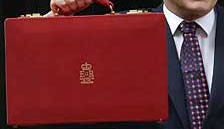


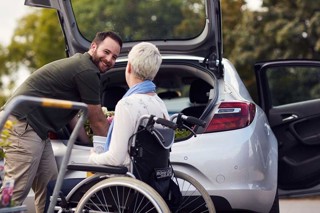


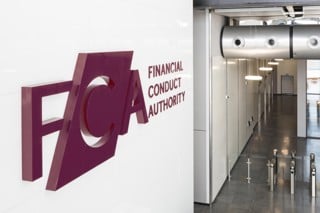
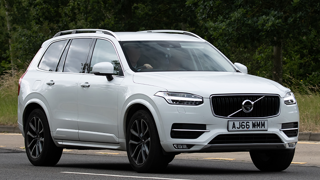













Login to comment
Comments
No comments have been made yet.